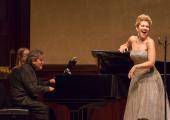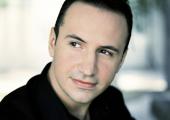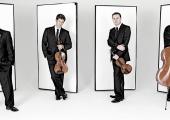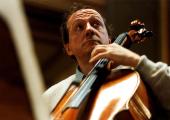Piau, Les Paladins, Correas, Wigmore Hall

An anniversary concert that was more froth than champagne
2014 is the 250th anniversary of the death of Jean-Philippe Rameau, France’s baroque giant and maverick. To say that the UK celebrations have been muted is to put in generously, reconfirming a national trend that has long sidelined this repertoire in favour of more familiar Italian and German contemporaries. So it was especially good to see the Wigmore Hall full for an anniversary concert from instrumental ensemble Les Paladins and soprano Sandrine Piau.









